Dear Families
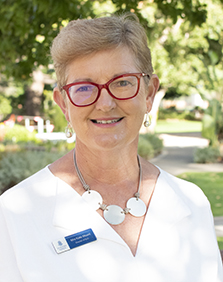
As many of you know, we are delighted to be a Top 3 Finalist in the 2021 Narragunnawali Awards. These are held every two years to recognise embedded practice of reconciliation in early childhood and school settings.
I thought I would explain a little more about these awards to give you all some context. Narragunnawali is a word from the language of the Ngunnawal people who are the traditional owners of the land on which Reconciliation Australia’s Canberra office is situated. It means alive, coming together and peace.
The purpose of these awards is to promote a high level of knowledge and pride in Aboriginal and Torres Strait Islander histories, cultures and contributions.
For the past five years, our ELC has actively worked towards embedding reconciliation practices across our Centre. This is such important work, assisting our children to grow in a space where intentional conversations are had, biases are challenged, knowledge of culture is built, and equality, equity and democracy are central in all we do.
Having an effective and shared Reconciliation Action Plan (RAP) has assisted us to articulate our goals and practices. I continue to be amazed at the wisdom and curiosity of our youngest students around our practices. Just the other day, a child asked his teacher during our morning meeting (Banbanbalya):
“Why do we say an Acknowledgement of Country every day?“
The teacher was not the one who provided the answer, but rather, a group of very vocal students who gave many reasons. They were centred around values such as kindness, care and sharing, with examples given of why these are important. They were not egocentric, but instead collective, demonstrating a key awareness of shared responsibility. As an observer, I could see the many ways the teachers have used the central ideas of the IB Primary Years Programme to teach the children in such a rich and deep way.
I hope this assists you to understand the significance of these awards. It is not merely a show-and-tell of all that we do, but rather an integrated culture we have established alongside Kaurna elder Tamaru and the many layers of learning that this has offered us to truly understand the significance and importance of reconciliation in the early years. I hope we can continue to partner in this work and build a strong foundation for our children as citizens of the world, now and in the future.
Kate Mount
Director of Early Learning
Important Dates
Wednesday 1 September: Coffee Van for ELC Families
Monday 13 – Tuesday 14 September: Parent-Teacher Conversations
Monday 20 September: Parent-Teacher Conversations
ELC Information Evening – Now Online
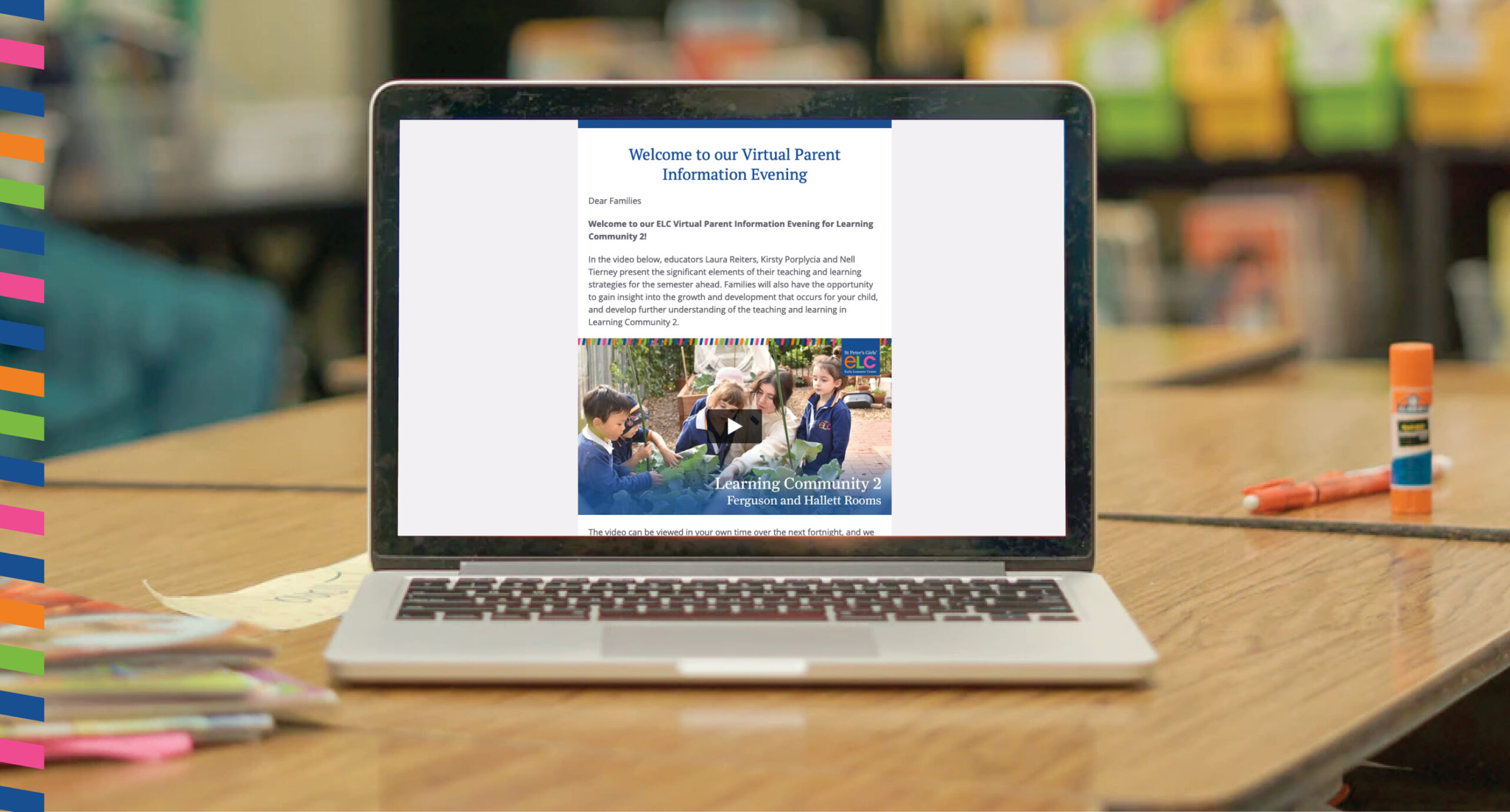
In an exciting and innovative turn of events, we have taken our ELC Information Evening online this semester!
Emails have been sent to families in each Learning Community which include the presentation from the ELC educators detailing the significant elements of the teaching and learning strategies for the semester ahead.
If you haven’t received the email, please contact me via kmount@stpetersgirls.sa.edu.au
Kate Mount
Director of Early Learning
Updated ELC Access Procedures
We are pleased that we have been able to update our ELC access procedures. The back gate next to the Chapel is again available for use; however, children still need to be signed in via the iCheckIn stand either in their room, or in the main foyer. The ELC staff will continue to support families who choose the foyer as their access preference.
Families should limit their time in the Centre to five minutes; this includes sign-in/out, drop-off/pick-up, and chatting to the educators. Please remember, you are able to communicate with ELC staff via phone or email if you feel you need a more in-depth discussion.
The following measures remain in place:
• Only one adult per family is permitted
• Please scan the SA Health QR code upon arrival
• Adults must wear face masks and practise physical distancing
• If you or your child are unwell, it is absolutely imperative to stay home until you have recovered, even if symptoms are mild
As the next fortnight will be particularly busy due to the front fence being excavated, we thank families for their understanding and support during our garden building works and the COVID restrictions. We urge families to consider the safest route into the ELC and avoid walking on Hallett Road.
Literacy in Learning Community 2
The Early Years Learning Framework explains that literacy incorporates a range of modes of communication including music, movement, dance, storytelling, visual arts, media and drama, as well as talking, listening, viewing, reading and writing. The ELC has created a literacy rich environment which provides children with many opportunities to explore and use literacy through their daily rituals and play. The educators support children’s language and literacy development through modelling, scaffolding and extending of literacy concepts.
Many families often ask us how they can further support their child’s language and literacy development at home and extend upon the experiences that they have when they attend ELC. There are many experiences that you can engage with at home with your child and you can do this in ways that are fun for the whole family; this can include:
- Reading books
- Identifying features of the book: front cover, title, words, pictures
- Talking – having a reciprocal conversation where you are both contributing
- Playing together, e.g. role play
- Listening to audio stories at bedtime
- Singing songs
- Rhymes and finger plays
- Fine motor experiences, e.g. drawing, book making, card making
- Practise storytelling – make your own story
- Locating signs and symbols in your local community
Watch our video above to see how we are incorporating these literacy principles in our everyday in Learning Community 2.
Kirsty Porplycia, Laura Reiters and Nell Tierney
Learning Community 2
Enjoy a ‘Thank You’ Coffee or Cuppa
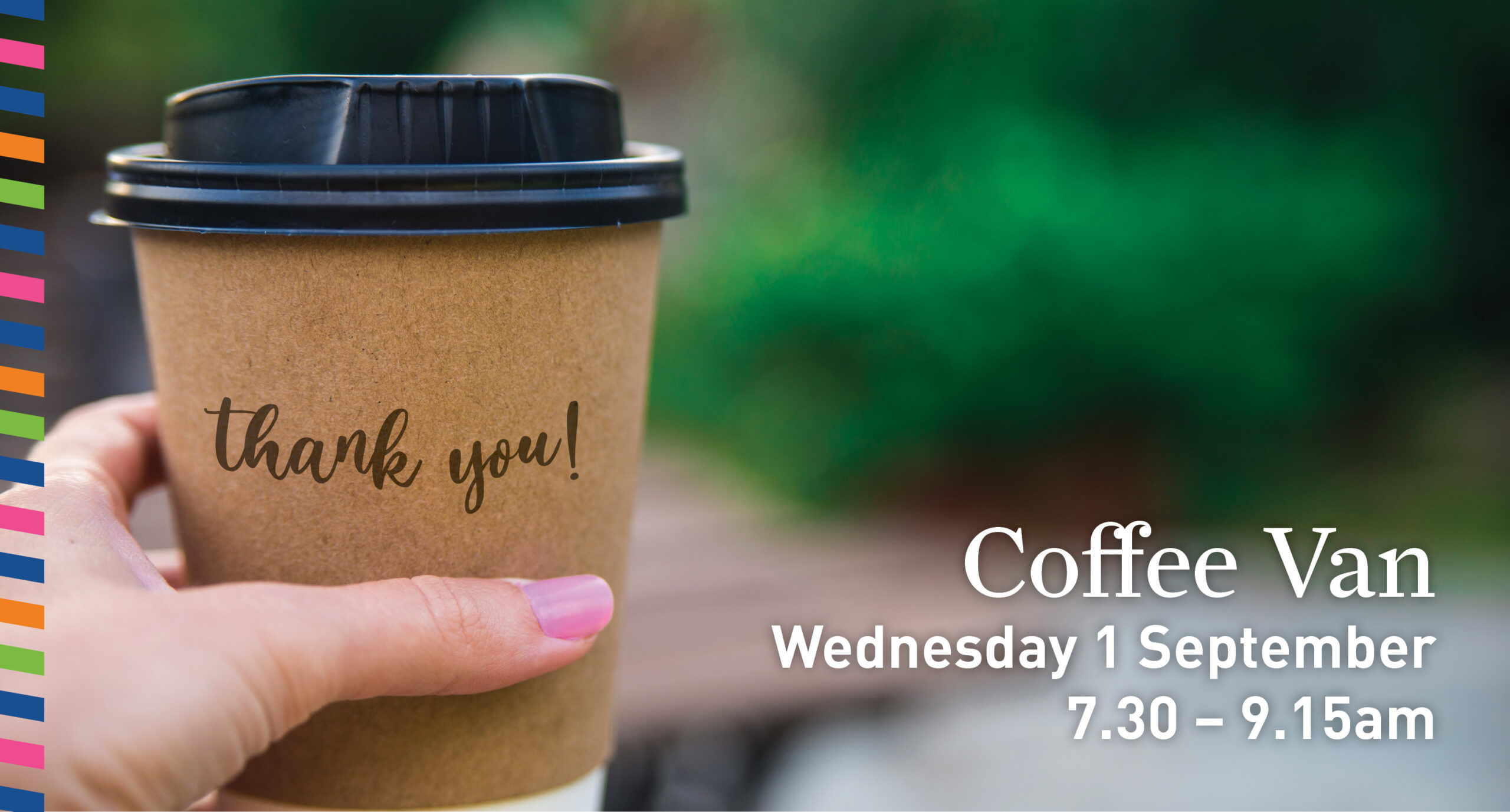
We want to thank our wonderful ELC community for being patient and supportive during the ELC Garden redevelopment and COVID restrictions. As a small token of our appreciation, we will have a coffee van on Hallett Road from 7.30 – 9.15am on Wednesday 1 September. Please stop by and make an order as you drop your child at ELC. Although we are delighted to be able to give back to our community, we must remind families to please remember to wear masks and practise physical distancing.
Kate Mount
Director of Early Learning
Keeping Safe: Child Protection Curriculum
The Keeping Safe: Child Protection Curriculum is a child safety program for children and young people from age 3 through to Year 12. It is a respectful relationships and child safety curriculum that teaches all children and young people they have the right to be safe and can talk to people they trust. All children and young people have a right to:
- Be treated with respect and to be protected from harm
- Be asked for their opinions about things that affect their lives and to be listened to
- Feel and be safe in their interactions with adults and other children and young people
- Understand as early as possible what is meant by ‘feeling and being safe’
The educators are engaging the children with this curriculum, explicitly teaching them about the nature of personal safety and wellbeing, their rights to personal safety and wellbeing, help-seeking and self-protecting behaviours, and their responsibilities to the safety and wellbeing of others. These groups are led in an age-appropriate and sensitive manner, and we often use the art of storytelling to engage the children.
Click here to view the Department of Education’s Fact Sheet. If you have any questions, please do not hesitate to contact Kate Mount, myself or your child’s key teacher.
Kirsty Porplycia
ELC Garden Redevelopment Update
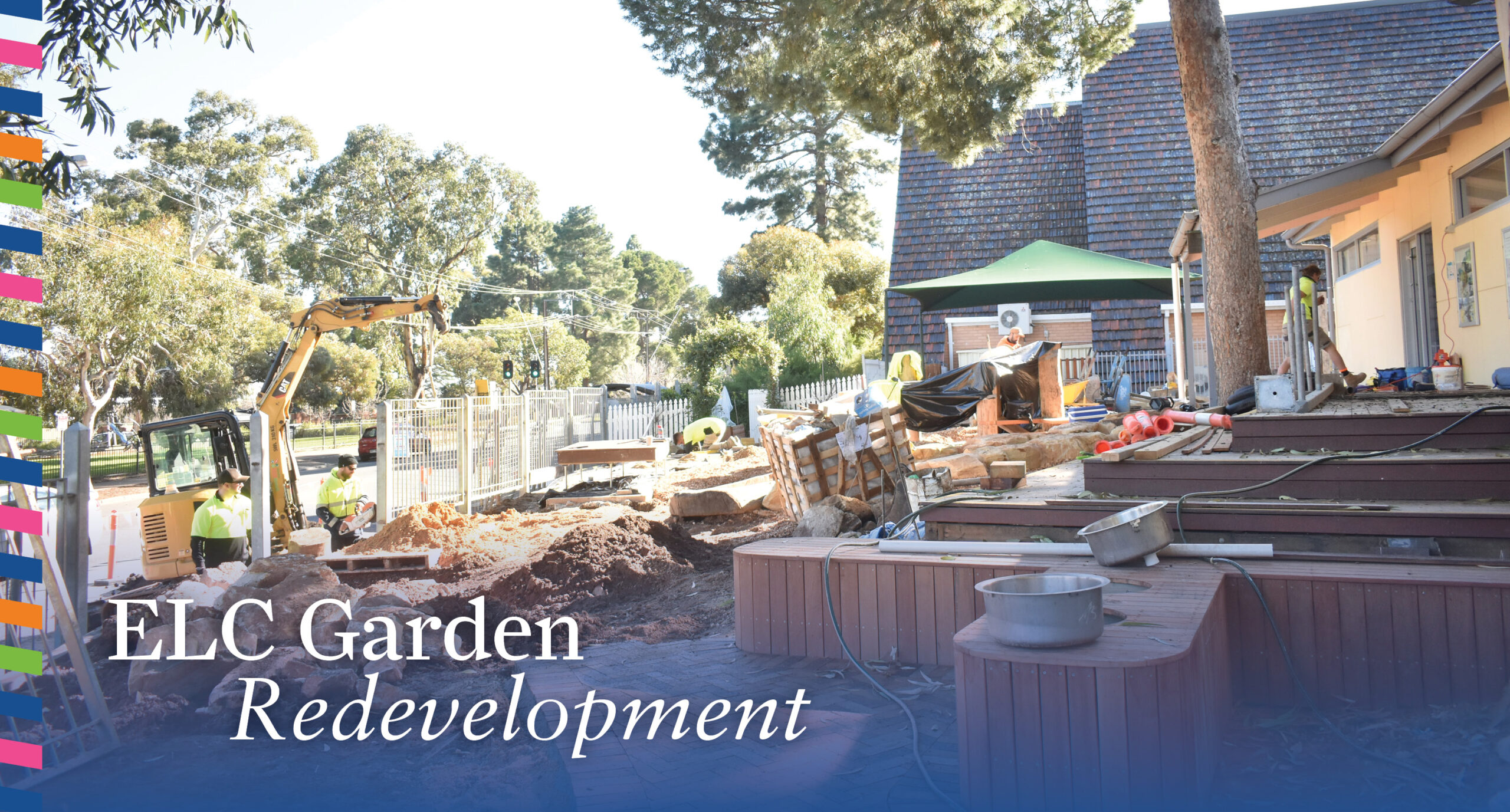
Greenplay has been working so hard on our Hallett Garden renovation and it is really taking shape. The pathways have been installed as well the the Rainbow Serpent around the sandpit. In addition, you will see a climbing and balancing structure going up. There is so much excitement from the children; each day, we watch in anticipation as the next phase takes place and it won’t be long until it’s finished and we can open up the space again for play. Each section of the garden is a part of our narrative of learning at ELC, featuring special components that reflect our connections to culture through our ELC journey.
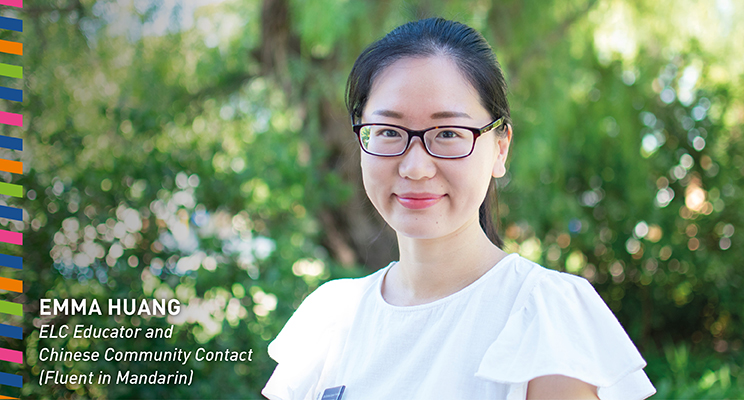
来自黄老师的信息
亲爱的家长朋友们,
您可能已经看到了,我们很高兴入围了2021年纳拉古纳瓦利(Narragunnawali)奖的前三名。这个奖项每两年举行一次,旨在嘉奖幼儿园和学校环境中的“和解”植根学习实践。
让我们来解释一下这个奖项,让大家了解一下背景。纳拉古纳瓦利(Narragunnawali)一词来自纳拉古纳瓦(Ngunnawal)人的语言,他们是澳大利亚堪培拉“和解”办事处所在土地的传统所有者。这个词意味着活着,走到一起以及和平。
这个奖项的目的是促进对土著和托雷斯海峡岛民历史、文化和贡献的高度认知和荣誉。
我们ELC在过去的5年里积极致力于将“和解”实践融入我们的早教中心。这是一项非常重要的工作,帮助我们的孩子在这样一个空间里成长,在这个空间里进行有意义的对话。偏见受到挑战,文化知识被建立。平等、公平和民主是我们所做的一切的核心。
拥有一个有效和共享的RAP(和解行动计划)有助于我们明确我们的目标和实践。在我们的实践中,我们最小的学生的智慧和好奇心一直让我们惊喜连连。就在几天前,一个孩子在集合仪式(banbanbalya)上问他的老师:
“为什么我们每天都说‘感谢国家’?”
老师并不是给出答案的人,而是一群积极发言的孩子们给出了许多理由——他们围绕着慷慨善良、关心以及分享等价值观,举例说明这些价值观的重要性。他们不是以自我为中心,而是集体表现出共同分担责任的关键意识。作为一名观察者,我看到了我们的老师们利用他们IB PYP的探究技能,如此丰富和深刻的方式来跟孩子们一起学习。
我希望这帮助您理解这个奖项的重要意义,它不仅仅是一个展示了我们所做的工作。更是我们在土著(Kaurna)长者Tamaru的帮助下,多层次学习,形成了这样一个相融的文化。这也提供机会来让我们真正理解为什么“和解”在幼儿早期教育中如此的重要。我希望我们能在这项工作中继续合作,为我们的孩子现在和未来成为世界公民打下坚实的基础。
园长
Kate Mount
Emma Huang works in Learning Community 2 on Mondays, Tuesdays, Thursdays and Fridays from 9am – 5pm.
Sustainability in the ELC
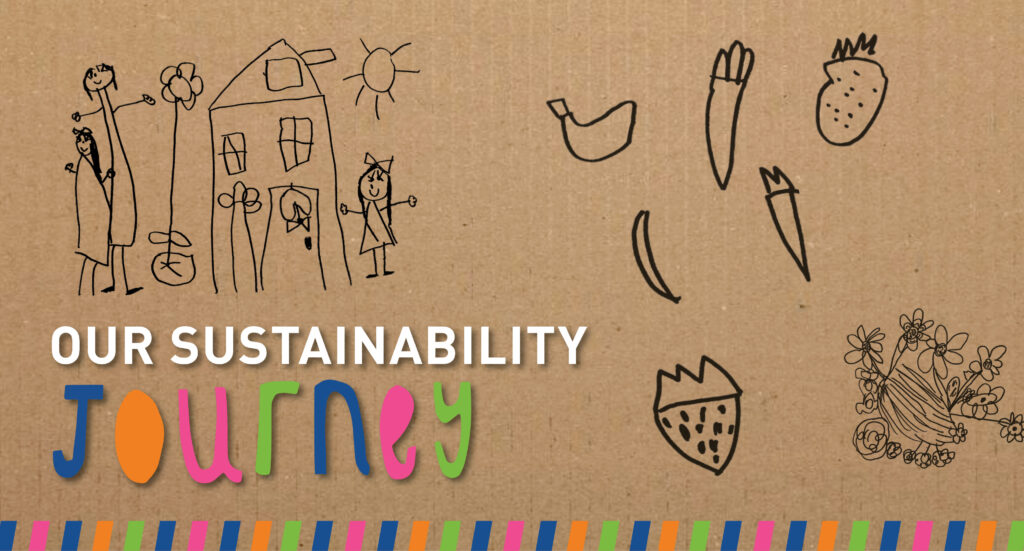
While the Hallett Garden is undergoing exciting construction, the children in Learning Community 2 have been focusing on the waste within the ELC. The question that is often asked each day is “Which bin does this go in?”. Understanding where our waste goes is one of the most critical steps in creating a sustainable mindset. The curiosity and compassion each child shares when organising and sorting the waste within the ELC is what drives our investigations in the later afternoons.
The children have been watching a video that investigates the contents of each bin, and the journey the waste goes on from the ELC to the preferred location. Many children have shared their concerns when they discovered where the landfill goes.
“I learnt that the landfill waste gets buried under the Kaurna Yarta.” – Chen Feng
“So we are basically walking on top of rubbish? That’s not good.” – Edith
“If we don’t pick up our rubbish and put it in the right bin the animals might think it’s food and they will get really sick.” – Chloe
Through the insights of each child within Learning Community 2, we are focusing on creating our own ELC specific posters that will enable each child to investigate which bin is the right bin for their waste and support their autonomy along the journey to sustainability.
Haylee Hunt
News from Learning Community 1
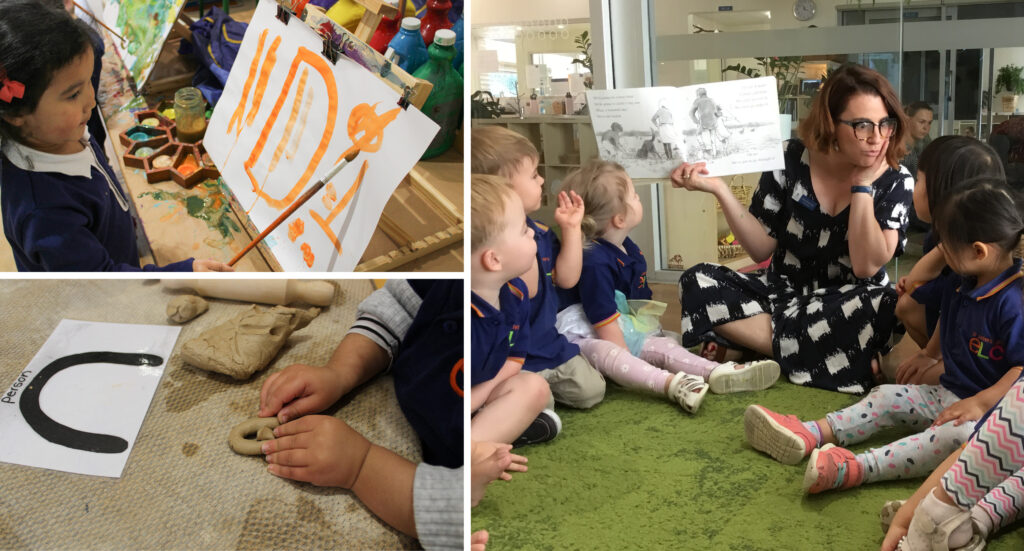
Every day at ELC, we are exposed to the power of literacy as we witness how a curiosity and love for storytelling and reading can activate a child’s own natural desire to learn. Literacy skills developed in early childhood provide children with a foundation for lifelong learning. Early exposure to the elements of literacy creates a unique set of tools for children to explore and make sense of the world around them whilst nurturing a passion for reading.
What does literacy learning look like in early childhood? The ELC day is filled with opportunities to develop early literacy skills, present in our daily rituals, intentional small groups and storytelling experiences. Here, we are embracing opportunities to develop skills in language, vocabulary, expression and reading.
Every morning, the first task the children partake in when they enter the space is to locate their locker tag in amongst their peers. They must look through the letters and match the first letter of their name to their photo. This ritual is one of many that supports an early understanding that the letters, words and symbols we are exposed to each day hold meaning. When they are put together, they communicate information that we can use.
Each day, the teaching team holds an intentional literacy group, where we explore, read and retell a focus story for a number of weeks. These experiences develop early understandings of the elements of a written text. As confidence grows, the children are invited to participate in the retelling of the story as they begin to build skills in recounting, predicting, and recognising pattern and sequence in a story.
At numerous points in our day, a silence will fall across the room as the children are captivated and caught up in the magic and excitement of telling a story together. Each idea, project and line of inquiry in Learning Community 1 is explored and revisited through storytelling. As educators, we are often asked how learning can be supported at home. Find an intimate moment each day to share in a storybook to continue to foster a lifelong love of reading.
Annabelle Redmond and Jess Catt
Learning Community 1
News from Learning Community 2
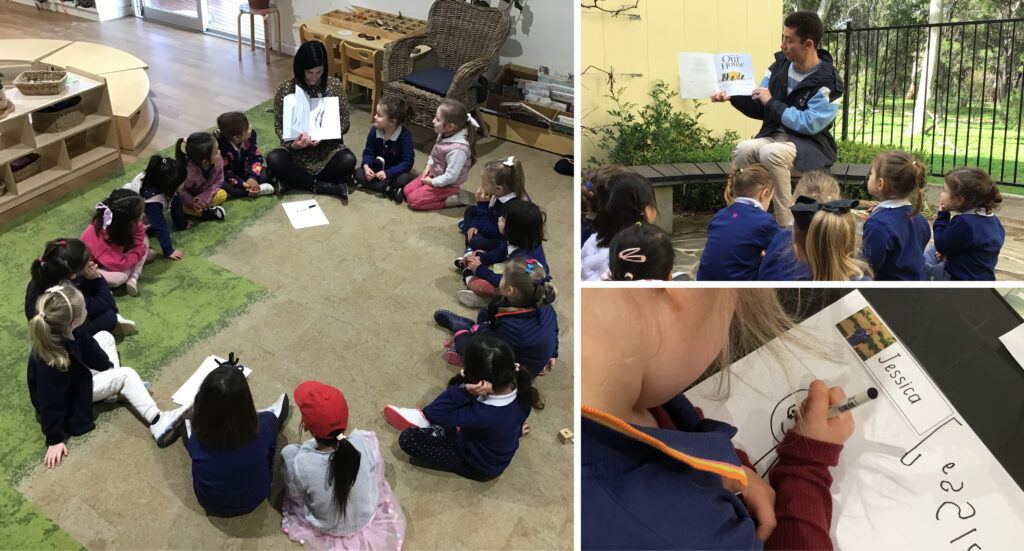
Embedding Literacy in Our Everyday Practice
Having a solid foundation in early literacy skills is critical to children’s future reading performance. Early literacy development begins in the early years of a child’s life and supports their future language development, reading, writing and overall learning.
In Learning Community 2, the educators are committed to embedding literacy experiences in our everyday practice. All of our experiences both indoors and outdoors are curated with intention to promote the use of language, vocabulary, dialogue, interest and wonder in our children.
For our inquiry focus this term, the Learning Community 2 teachers have chosen to use the children’s book This is our House by Michael Rosen and Bob Graham as our provocation for our learning. This teaching strategy allows the children to become familiar with a specific narrative and they are able to explore it in various play-based ways. The children have been introduced to this story through the book and through a digital version, and we are currently exploring dramatic role play to understand the concepts in the story. Our initial provocation to the children has been based on their ability to comprehend and process the story, and we have been able to see where their gaze lays. They are supported to verbally express their theories and ideas and convey these through drawings. Some are exploring their emerging writing skills by using letters and symbols to further add meaning to their work.
Another reason why we are focusing on a single story for the term is that the repetition fosters language development allowing the children to become more confident with the specific written language of the book. It means that all our children from 3 to 5 years old can enter this learning in different ways, and we can support and differentiate the curriculum for all the children in our care. We will be updating our Home Page regularly with how this inquiry is developing, and we look forward to sharing your child’s literacy rich work during our Parent-Teacher Conversation later this term.
Nell Tierney, Laura Reiters and Kirsty Porplycia
Learning Community 2
Find Out What Happens Throughout
the Day at ELC
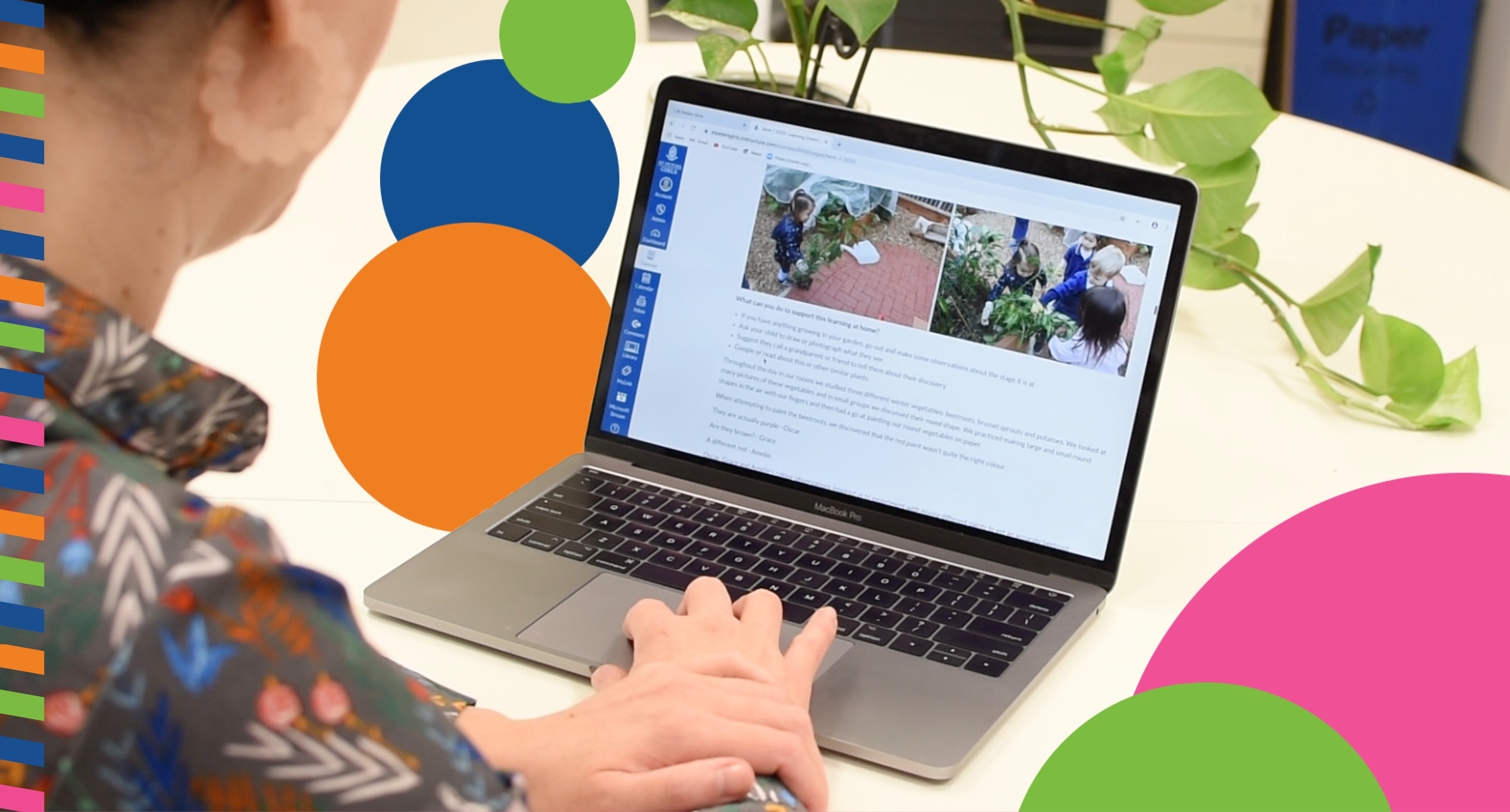
The ELC Learning Community Home Page is a dynamic online sharing space that invites you to participate in the communities’ learning as it happens. We use this tool to communicate important information with families and provide a window into the children’s life at the ELC, as educators share documentation of teaching, specialist lessons and spontaneous moments.
Accessing myLink for the first time:
- Visit https://mylink.stpetersgirls.sa.edu.au
- To set your password, click the link located below the sign in section
- Your user name was emailed to you upon your child’s commencement (see Helpdesk contact details below if you cannot source your user name)
- Enter your unique user name, click ‘Next’
- Enter the security code sent to your mobile
- Enter the password you would like to use and press submit
- Return to the login screen at https://mylink.stpetersgirls.sa.edu.au to access myLink
- Several instructional videos are available via the Welcome page if you click on the ‘HELP’ menu tab
Accessing the Learning Community Home Page through myLink:
- Access myLink as per the above instructions
- Click on the ‘MYLINK HOME’ tab
- Click on your child’s name tab
- Under ‘Class Contacts’, click on the ELC room name (you may need to enter your user name and password again)
If you have any issues accessing or navigating myLink, please contact the IT Helpdesk via helpdesk@stpetersgirls.sa.edu.au or 8334 2227.
ELC’s Online Etiquette Policy:
Please note that the ELC Learning Community Home Page and ELC News contain images and videos of other children. We therefore ask that you do not copy or share images or videos, especially on social media, if they contain other children.
Absences in the ELC
Student Absences
Please notify the School via one of the following methods for late arrivals/early departures and absences, ensuring a reason for the absence is included.
Text: 0428 601 957 (save to phone contacts as SPGS)
Email: attendance@stpetersgirls.sa.edu.au
Phone: 8334 2200 or phone the relevant room as per the contact list below.
Please include the relevant room teacher when sending via email.
ELC Room Contacts:
Bell Yett – 8155 5777
Ferguson – 8155 5776
Hallett – 8155 5775
Stonyfell – 8155 5778
ELC Immunisation Policy
Under the Government’s No Jab No Play policy, families must meet immunisation requirements to attend the ELC and receive the Child Care Subsidy. Families are required to provide all approved immunisation records to the ELC. Further information is available by clicking here.
Children who are suffering from illnesses such as those listed below must be excluded from ELC in line with our Exclusion Policy:
- Influenza
- Chicken Pox
- Conjunctivitis
- Diarrhoea
- Hand, Foot and Mouth Disease
- High Temperature
- Infectious Hepatitis
- Measles
- Meningitis
- Mumps
- Rubella (German Measles)
- Scabies
- Scarlet Fever
- School Sores (Impetigo)
- Upper Respiratory Tract Infection
- Vomiting
- Whooping Cough
